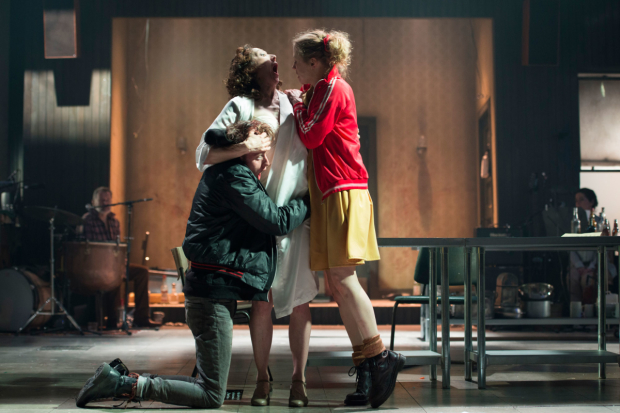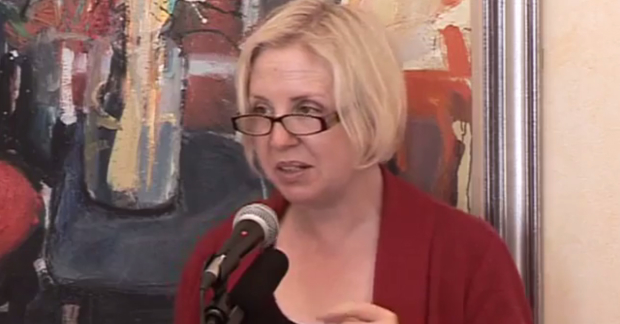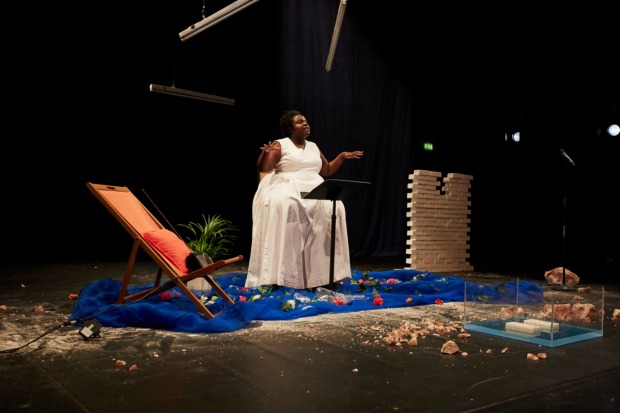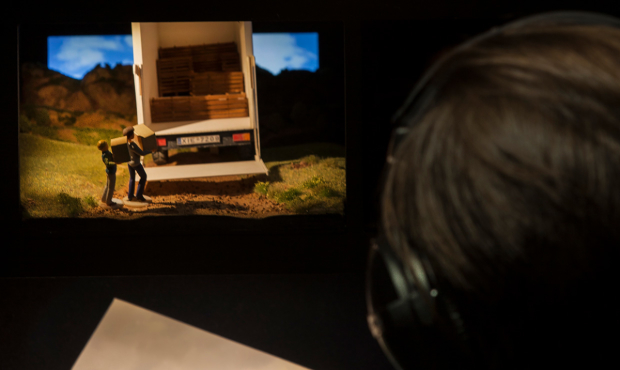Edinburgh review: Not I (Pleasance Courtyard)
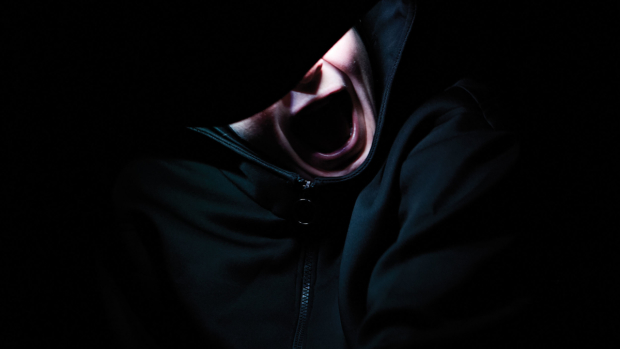
© James Lyndsay
"Don’t tell the Beckett estate!" Jess Thom tics. The Irish writer’s executors are notoriously strict with his scripts – no hesitation or deviation allowed. For Thom, performing his iconic motormouth monologue Not I as part of the biennial British Council Showcase, that’s simply not possible. Living with Tourette’s Syndrome entails an array of uncontrolled, unconscious verbal outbursts and twitches. She says the word 'biscuit' several hundred times a day. This, then, will be Beckett with biscuits.
It’s so much more than that, though. As performed by Thom, it becomes an occupation, a remix and an attempt doomed to failure all at once – a brilliant piece of conceptual performance that throws down a challenge to theatre as a whole. This is an intervention, make no mistake. It asks who gets to perform what, and how? It questions the ways we frame theatre and perceive artistic merit, and whether notions of excellence are, at present, exclusive.
Dressed in black, a hoodie half obscuring her face, Thom sits in a wheelchair and is winched eight feet into the air – as per Beckett’s stage directions – by a specially constructed metal crane. When Thom talks, particularly when she pauses, she seizes up into tics. Really, we can’t be sure what’s Beckett and what’s not. Below her, BSL interpreter Charmaine Wombwell stands in for the Auditor, performing Not I (plus biscuits) physically – an equally remarkable feat.
In truth, Thom’s rendition doesn’t have the impact of Not I at full whack. Rather than two red lips, mesmerically spotlit in a black void, we see the lower half of her face in full. Mouth, here, remains embodied, so we see the performer, not the image as intended. Not I can be hypnotic; a dizzying brain swirl. Beckett wanted it to work on the nerves more than the brain. This isn’t and it doesn’t. The conceptual frame is so present it’s hard to cut loose from your rational mind and lose yourself in the babble of words.
Not impossible, mind; it just takes a while. In any case, the gains outweigh the losses and, besides, another Not I will be along any minute. Thom’s performance punctures notions of virtuosity and perfection, of drama school diction and able-bodied assumptions. It puts inclusion and accessibility ahead of old ideas of excellence, even as it exposes the expense and effort involved, but it is a feat in itself; a remarkable and vulnerable act. In that, it questions hierarchies of arts spending and cultural priorities. Thom asks why a dead writer’s words can be elevated over a living audience’s experiences. Why, you wonder, is Beckett’s nonsense canonical while Thom’s tics are not?
In Thom’s mouth, Mouth changes. We hear the text anew. She stresses, pre-performance, that Not I isn’t just a challenge for her. It’s still an act of expression, still an artistic choice. She identifies with Mouth, maybe more than most. Her everyday reality is an unstoppable stream of words. Phrases ping out: 'some flaw in her make-up', the brain still 'in control…under control,' 'words were coming'. Thom reclaims Mouth as a disabled character – her voicelessness, her disembodied nature, her absence.
But it’s the frame that makes the difference. Thom introduces the performance carefully, explaining the project and describing the stage, then follows up with a documentary film by Matthew Poutney about the process and an open-ended Q&A. Great art is and ought to be for everyone. There should be no 'Not I'.
Not I runs at Pleasance Courtyard until August 26, 12.00.



